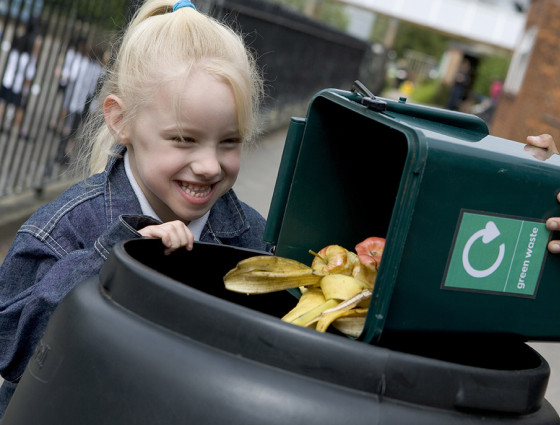
Reducing waste in schools
There are several ways schools can look at reducing the amount of waste they throw away every day.
Waste prevention is better for the environment and usually cheaper than either recycling or waste disposal.
There are lots of simple actions that your school can take to reduce its waste:
- think about the packaging used in your lunch and try to prepare a waste-free lunch which produces as little food and packaging waste as possible
- use reusable bottles for juice or waster rather than buying new containers every day
- install water fountains to avoid pupils having to bring in plastic drink's bottles
- make double-sided photocopies or printing where possible
- print only when necessary, try to keep electronic copies of files instead of printing everything out
- send out email newsletters or notes to parents rather than printed ones that get lost in the book bag
- if paper has been written or printed on only one side, why not use it as scrap paper for messages, notes and lists
- set up a school reuse shop for uniforms
- collect textiles and clothing to raise funds for the school,contact Bags2Schools for more information
Changes to requirements
Please note: From March 2025 all schools will be required to segregate their waste and have their recycling and food waste collected separately. Your waste carrier will be able to provide you with the relevant information and containers for the separate materials.
Additional resources
Open each of the expandable boxes below to see what additional resources are available:
Recycling at school is easy and can significantly reduce the amount of rubbish your school throws away, which saves money in collection charges. Speak to your waste collection company or local council to see if they offer a recycling service for schools.

 Facebook
Facebook X
X Email
Email WhatsApp
WhatsApp Messenger
Messenger